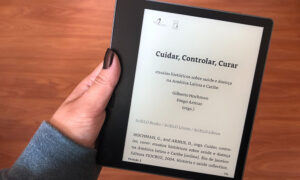By Gilberto Hochman
Researcher at Fiocruz, Scientific Editor at Editora Fiocruz and Assistant Editor of Ciência & Saúde Coletiva
Amid the COVID-19 pandemic, social midia is applauding the franchise of open access to books, book chapters, data and encyclopedias in all areas of knowledge by traditional foreign university publishers, bases such as JSTOR and Project Muse, and various publishers. The necessary policies of social isolation, and even quarantine, led to the closure of research institutions, universities, libraries and archives. And, with that, the drastic reduction of knowledge access channels, particularly in countries outside the 21st century central circuit of science. The offer is worthwhile and should be celebrated and enjoyed. However, this open access has an expiration date: the end of the pandemic.1 Regardless of its duration, after the international health emergency, access will again be paid for, either by individuals, educational and research institutions and by government agencies, with a huge burden for the countries of the Global South. Anyone who has tried and enjoyed, should pay to continue having access. Open access to scientific knowledge is not a routine or a commitment by publishers, but a business and an exception like during the pandemic. In that sense, SciELO Books is more important now than ever.
Created exactly eight years ago in the context of the SciELO Program, SciELO Books had the pioneering participation of Editora Fiocruz, Editora da Unesp and Editora da Universidade Federal da Bahia. In its origin, there was the urgency to promote and value the academic book produced by Brazilian university publishers. And, also, the understanding that valuing the book was inseverable from an open access policy for communicating scientific knowledge and its internationalization. Inspired by SciELO Journals created in 1998, the book platform was created at a time when books digital formats and their availability in open access were mistrusted. Concerns were shared by authors, readers and even by university publishers. The very economic support of open access to books and journals was, and remains, a challenge. The combination on the same open access platform, with a greater number of books, and commercial access, was the solution found for financing the initiative. A scientific advisory committee was created to guarantee the quality of publishers and books that would be indexed and made available in SciELO.
Eight years later, the numbers are impressive: 19 publishers, 5 collections, 766 books and 10,380 book chapters in open access and almost 93 million downloads. An unimaginable reach for a country that has very few bookstores and a large portion of its population with reduced buying power. There is no doubt that SciELO Books follows the expansion of the Brazilian university and, at the same time, offers free basic educational resources: books. Furthermore, it has reached Portugal, Portuguese-speaking countries in Africa, and those interested in Brazilian academic output in books on all continents. A not-anticipated result, and not necessarily known, is that SciELO Books is part of Brazilian cultural and scientific diplomacy. It grew geographically, allowing scientific and intellectual output rooted in regional issues to be known and progressively becomes an open access platform for Latin American university books, with the joining of editorial houses from different countries in the region. Another important result is an effort to revalue the academic book as a scientific output based on open access on a platform with quality filters.2 If it had have historically, and have still today, a prominent place in the humanities, this highlight has been challenged by the great valuation in the evaluation processes (individual, institutional and graduate level) of articles in scientific journals.3 The revaluation of the academic book will also be the urgent valuation of the human and social sciences. The impacts of the circulation and dissemination of academic books in open access certainly still need to be grasped by specific metrics in education, science and technology and incorporated by funding agencies. But the millions of downloads are relevant indicators to start with.
SciELO Books, therefore, it is not a passing offer for tasting readers in feverish times. It is not an eventual action in health emergencies. It is an integral part of an open access to knowledge public policy that has been consolidating in Brazil for two decades and that has been changing the ecology of national scientific publication, particularly in the field of journals, but which extends decisively to university books. Responses to health crises are supported by these collections of open knowledge. Ten years ago we were discussing what the future of printed books would be in the increasingly digital world, but composed of unequal societies. SciELO Books has been one of the good and lasting answers: the future of the book is that of accessible and appropriable knowledge by the largest number of readers and progressively aligned with open science.
Notes
1. Free Resources on MUSE During COVID-19 [online]. Project Muse. 2020 [viewed in 13 April 2020]. Available from: https://about.muse.jhu.edu/resources/freeresourcescovid19/
2. A round table on books was held at the 43rd National Meeting of ANPOCS in October 2019 with the participation of Cynthia Sarti (Unifesp), Michel Misse (UFRJ), Gilberto Hochman (Fiocruz) and Daniela Alves (UFV). Probably the first in decades, vis-à-vis the ongoing discussion on scientific journals in the social sciences.
3. Data extracted from SciELO Journals mostly indicates that social science and humanities journals cited more books and book chapters than journal articles in the last 10 years. I’d like to thank Rogerio Mugnaini and Amanda Ramalho for the information.
References
Free Resources on MUSE During COVID-19 [online]. Project Muse. 2020 [viewed in 13 April 2020]. Available from: https://about.muse.jhu.edu/resources/freeresourcescovid19/
Como citar este post [ISO 690/2010]:


















Recent Comments